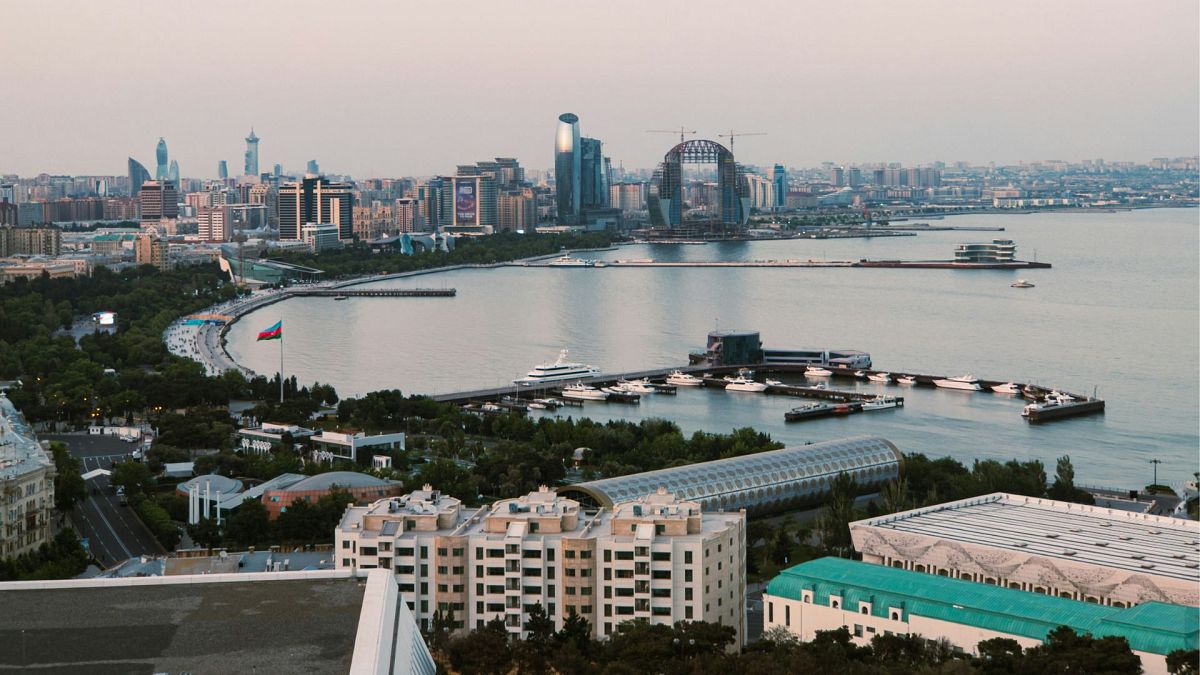
Against the backdrop of Baku’s COP29 climate negotiations, the shores of the Caspian Sea are retreating. All eyes are on Azerbaijan as the small petrostate hosts COP29 in its capital Baku, which sits on the shores of the Caspian Sea - the largest inland body of water on Earth. The Caspian Sea, sometimes called the world’s biggest lake, lies between Europe and Asia.
Bounded by Kazakhstan, Russia, Turkmenistan, Iran and , the sea is shrinking. And according to local experts, climate change is partly to blame. The Caspian Sea has a surface area of 371,000 square km - approximately equivalent to the size of Japan.

But Azerbaijan’s National Hydrometeorology Service says the levels of the Caspian Sea have dropped by three metres since 1995. Discussing the issue with Russian leader Vladimir Putin in August - the sea is bordered by to its north - the country's president Ilham Aliyev was reported to have described the situation as “catastrophic”. Water levels have dipped so dramatically that , Sabayil Castle, long submerged by a 14th-century earthquake, is now visible above the waves.
The nearby Garabogazköl lagoon, connected to the Caspian Sea by a narrow strait, once previously dried up when water flow from the Caspian was blocked in the 1980s, but has since been restored. Rovshan Abbasov, an associate professor of geographic sciences at Baku's Khazar University, says a number of factors are impacting the sea's water levels, including humans using water from the that flow into the sea, and climate change impacting weather patterns. "The current retreat has deeper roots.
The rivers flowing into the Caspian are contributing less water than before," explains Abbasov. "For instance, the flow of the Kura River is decreasing due to the impacts of climate change. In the basin, rainfall is not as abundant as it used to be.
This also leads to a decline." Nazim Mahmudhov, head of the country's National Hydrometeorology Service, says climate change is one of the main factors affecting the water levels. “The ongoing climate changes have led to a decrease in the water levels of the rivers flowing into the sea, as well as an increase in evaporation due to global warming.
All these factors have had a significant impact.” Vugar Abdullayev, chairman of the Baku Fishermen and Underwater Hunters Club, says the shoreline has receded by 10 to 20 metres in the last decade. “We are currently standing in the water, but if it were 10 years ago, we would be 10 to 20 metres further inside the Caspian Sea from the shoreline where we stand now,” he says.
“However, due to global warming and the retreat of the Caspian Sea, we are now forced to cast our nets farther out to catch fish as the water continues to recede.” He claims that this summer was caused by rising temperatures leading to a lack of oxygen. “This summer, we witnessed mass die-offs of fish multiple times.
Some people said they were poisoned, but that’s not the case. It was not a poisoning issue at all. Due to the rising air temperatures, , which reduces the amount of dissolved oxygen in the water,” he explains.
“As the oxygen percentage decreases, the fish struggle to breathe and, as a result, jump out of the water onto the shore in large numbers,” adds Abdullayev. Because of its size, the Caspian Sea provides a diverse habitat to flora and fauna. Parts of the inland lake freeze over in winter, while its islands feature gazelles, spur-thighed tortoises, and birds designated to Important Bird Regions.
One hundred years ago, the sea was home to more than one million seals; but now fewer than 10 per cent of this figure remains. Video editor.














